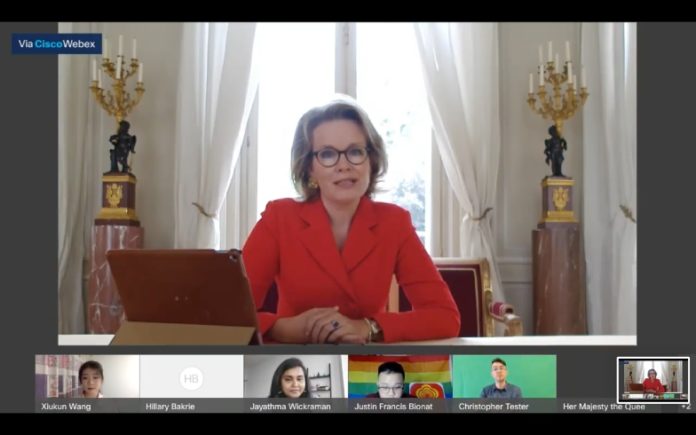Feelings of fear, anxiety, anger, sadness and grief are being widely felt by young people across the world due to the impacts of COVID-19.
As governments have had to respond to the virus by enforcing measures such as physical distancing, quarantines and the closure of schools, the lives of young people have been greatly impacted.
“Many of us have worries, are feeling anxious and lonely. I worried about the safety of my family and friends and about the future,” said Xiukun Wang, a student from Wuhan, China in an online webinar focusing on young people’s mental health organised by the United Nations Secretary-General’s Envoy on Youth, Jayathma Wickramanayake.

Several young people have fears over contracting coronavirus and losing loved ones; school and university closures; as well as a loss of routine and social connections. Access to mental health services has also been severely impacted.
For World Health Organization Director-General Dr Tedros Adhanom Ghebreyesus, COVID-19 is not only a physical issue but a mental health issue.
“The mental health needs of young people need to be cared for and responded to by mainstreaming mental health services. There is no health without mental health,” he told the webinar.
Widespread impact on mental health
Studies across Europe already show the impact of the pandemic on mental health. UNICEF UK found more than 60% of UK children are worried about the impact of the coronavirus on their lives. Belgian public health institute, Sciensano, found young people aged 18-24 and students were by far the most affected by anxiety and depression during the crisis. Parents in Italy and Spain noticed that their children had difficulty concentrating, were irritable, restless and nervous.
Her Majesty Queen Mathilde of the Belgians, an Advocate for the Sustainable Development Goals, called for improved access to support and services and to fight the stigma surrounding mental health, which prevents many people from seeking help.
“Young people helping young people is essential. I hope all of us will come out of this crisis feeling stronger. Let us continue to support each other,” Her Majesty Queen Mathilde told the webinar.
Adapting positively
Young people across the world have taken actions to try to adapt positively towards the crisis. This includes staying active; taking time for themselves; learning skills; and keeping friends and family close.
“COVID-19 and responses to it have been quite challenging for the mental well-being of young people. But we have also heard terrific, inspiring stories of young people learning and navigating these challenges successfully to survive and thrive,” said Jayathma Wickramanayake.
Building a new normal
Looking to the future, United Nations Secretary-General António Guterres called for mental health to be given “the priority it has always been denied”. He urged governments to ensure considerations on mental health are at the centre of responses to the pandemic.
Guterres concluded he was “hopeful” the contributions of young people can change the way the world deals with mental health.
“Young people are in the centre of the need but also in the centre of the innovative responses to mental health,” he said.

